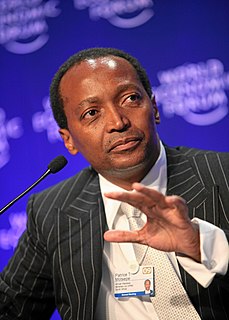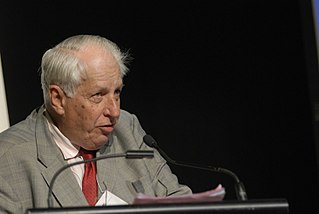Top 1180 Sector Quotes & Sayings - Page 20
Explore popular Sector quotes.
Last updated on April 21, 2025.
Money is not a part of the visible sector of the economy; people do not consume money. Money is not a physical factor of production, but rather a yardstick for measuring economic input, economic outtake and the relative values of the real goods and services of the economic world. Money provides a method of measuring obligations, rights, powers and privileges. It provides a means whereby certain individuals can accumulate claims against others, or against the economy as a whole, or against many economies.
The current U.S. and Eurozone depression isn't because of China. It's because of domestic debt deflation. Commodity prices and consumer spending are falling, mainly because consumers have to pay most of their wages to the FIRE sector for rent or mortgage payments, student loans, bank and credit card debt, plus over 15 percent FICA wage withholding for Social Security and Medicare actually, to enable the government to cut taxes on the higher income brackets, as well income and sales taxes.
The ranks of educated professional swelled as more Americans went to college and more Americans sort of adopted a more cosmopolitan lifestyle and worldview. And as the Democrats were looking for an alternative to the unions who no longer seemed like a large enough base for the party, they found the educated who veered more toward a progressive cultural outlook, who may have had - may have been working in the financial sector, in entertainment, in media, in universities. That became really the rank and file of the Democratic Party over a long period of time.
Hijras earn a living by egging, sex work, badhai or blessing. There are now transgenders in social work, the fashion industry, who have PhDs. I say, "Study, study, study." You need not wear a sari, and even our ancestors said you need not wear feminine attire to be part of the third gender. When I started bar dancing, nobody else was doing it. When I joined the social sector in 1999, there were no nonprofit organizations working for the rights of hijras in India. But I had to do it, I wanted my dignity.
The America of Obama's dreams is not the one of self-reliance and entrepreneurship to which he paid phony lip service at the beginning of his speech. It is an America in which the government, rather than the private sector, creates wealth and leads ignorant, helpless people by the nose from cradle to grave, from preschool to the academy, with the caveat that if they succeed too much, they will make themselves enemies of the state and targets for punitive action. Obama's new American dreams is an American nightmare.
For sure I would prefer Trump had not withdrawn from the Paris Agreement. But the fight against climate change is really done at the local level - whether it's cities, local governments or the private sector, corporate and individual. No matter what Trump says, nobody is going to go back and take the scrubber out or change back to polluting. The damage that Trump can do is if there are countries that are on the fence about whether they want to address the issue, this gives the naysayers, the doubters, those that don't want to do anything, a little more ammunition.
All the alleged key causes of SOE [State-Owned Enterprise] inefficiency - the principal-agent problem, the free-rider problem and the soft budget constraint - are, while real, not unique to state-owned enterprises. Large private-sector firms with dispersed ownership also suffer from the principal-agent problem and the free-rider problem. So, in these two areas, forms of ownership do matter, but the critical divide is not between state and private ownership - it is between concentrated and dispersed ownerships.
I don't think school reform should be motivated by missionary zeal. I think it should be motivated by evidence of what works. I have been critical of Teach For America in the past but I think one of the things about their model that's interesting is that they're constantly looking at it and whether what they're doing works and reassessing their model, and making changes. So to the extent that I believe everyone in the education sector should be looking at evidence, reassessing, making tweaks to figure out what works, I think it's a positive model.
Then there is another area of activity - economic interaction between Russia and the United States. Right now, for example, it has already been made public that we signed a large deal to privatise one of our biggest oil and gas companies, Rosneft. We know for sure that US companies, as well as Japanese ones, by the way, are keenly interested in cooperation in Russia's oil and gas sector, in joint work. This has immense significance for world energy markets and will directly affect the whole world economy.
The Democrats are going to tax everybody through the roof. It is going to be focused on people that are wealthy because that's who they can tax. When you look at the stimulus plan - see, this doesn't make any sense, this is not working, it's not going to work, it's not intended to work the way we all were told it was gonna work. Health care is not going to get better. It's gonna get worse. It's gonna get rationed. The economy, the energy sector, nothing is being improved here. Everything's being wrecked.
Thanks to the ongoing support of the Government of Ontario, RHF, in partnership with the Ontario Neurotrauma Foundation, has galvanized Ontario’s best researchers, clinicians and scientists to accelerate the translation of the most promising research into practical solutions. This commitment enables the ongoing leveraging of federal, provincial and private sector funds to allow Canadian SCI researchers to embark on a national and global collective journey towards making a difference in the lives of people with spinal cord injury and other disabilities.
Barack Obama's policies can be summarized as omnipotence at home, impotence abroad. So, the federal government is expanding its powers at home over the private sector and over the lives of ordinary citizens. Abroad, Obama's working to undermine America's influence and power. If someone is trying to shrink America's influence, it doesn't necessarily mean you have to do it by doing nothing. You can also be vigorous like Obama who has been very active to achieve what has really been his consistent objective.
For me, it is clear that we are currently in a period of structural crisis of capitalism going back to the 1970s, but deepening in our time. Persistent economic stagnation together with neoliberal austerity has at this point seriously undermined the stability of the liberal-democratic state and thus the political command sector of the capitalist system. This has led to a dangerous resurgence of political movements in the fascist genus, representing an alternative way of managing the state of the capitalist system, opposed to liberal democracy.
I, for one, despite being a pretty solid climate hawk, I am extremely sympathetic to West Virginia and its coal-country needs. I lived there for a year. I've seen it. And the same for Wyoming, Ohio, Pennsylvania, Kentucky. They all have parts of their state where that really matters. And I think that home-state constituency issue is a pretty constant one. And I think the problem of extreme lobbying by the corporate sector, which runs about $30-to-$1 compared to everybody else in the world, and the constituent aspect combines to give those industries a consistent advantage.
Ever since Steve Bannon was demoted, and drama started playing out between Bannon and Jared Kushner and the firing of Comey and "Is he going to get impeached?" we have been trapped in a classic Survivor reality TV show, like, "Who's going to get voted off the island?" And this has every single news show enjoying ratings never seen before. And it physically pains them to talk about the stakes of this administration, whether it's health care or climate change or the deregulation of the financial sector or social security. None of it can compete with this reality show.
Student debt is structured to be a burden for life. The indebted cannot declare bankruptcy, unlike Donald Trump. Current student debt is estimated to be over $1.45 trillion. There are ample resources for that simply from waste, including the bloated military and the enormous concentrated private wealth that has accumulated in the financial and general corporate sector under neoliberal policies. There is no economic reason why free education cannot flourish from schools through colleges and university. The barriers are not economic but rather political decisions.
What type of new economical system can organize this system? There is another sector in our life, that we rely on every single day, that are absolutely essential: the social commons, the social economy. It is all the activity we engage in to create social capital. It doesn't create capital market. Social commons is growing faster than the market place. It is growing faster than the market place. The social commons include any activity that is deeply social and collaborative.
The export of oil, the export of minerals, will for many decades continue to be a critical part for the growth of African economies. The emphasis is on diversification. We have for many years - not just in South Africa but in many parts of the continent - spoken about beneficiation. And I think part of the secret, in relation to beneficiation, is you have got to make it attractive, profitable for the private sector - and it will take off. You may have to look at mechanisms like tax concessions... You will not have to worry about beneficiation if it makes commercial sense.
There's no denying that a collapse in stock prices today would pose serious macroeconomic challenges for the United States. Consumer spending would slow, and the U.S. economy would become less of a magnet for foreign investors. Economic growth, which in any case has recently been at unsustainable levels, would decline somewhat. History proves, however, that a smart central bank can protect the economy and the financial sector from the nastier side effects of a stock market collapse.
Barry Jones once said that Australia is the only country where the word 'academic' is a pejorative. The academic sector has a vibrant and practical role to play in this complex world of ours. Higher education and research are worthy of your much closer attention. Yes, we can be and should be the clever country. Our progress can be within the highest ethical and moral framework. But this will only happen if we place appropriate emphasis on education, research and innovation within a truly international framework.
There is an alternative to terror. It is called, in the political order, democracy. In the economic order, it is called the dynamic enterprise economy. (...) It empowers poor people from the bottom up. (...) A dynamic economic sector is the poor's best hope of escaping the prison of poverty. It is the only system so far known to human beings to take poor people and make them, quite soon, middle class, and some of them even (horrors!) rich.
There's one America that Barack Obama wants, and there's a very different America that I want. I want an America that is entrepreneurial, that has a strong private sector in which religious faith is respected and even nourished, in which there's vigorous debate across the spectrum, and in which our universities teach real history instead of propaganda. Certainly the decline of America is a choice, though the outcome is not foreordained. But liberty is also a choice, and I'm doing my best to persuade the people of America to make the latter choice.
This is one way that wealthy Americans could really contribute. They could put hundreds of millions of dollars into the infrastructure bank, be a good investment for them, for their children, for their grandchildren, and they would directly contribute to revitalizing a big sector of middle-class wages in America and making our country more productive, so that we could create more opportunity. But I think that we could get a lot of grassroots support from, like, local chambers of commerce and other things if they understood exactly how this infrastructure bank would work.
I was grateful that Facebook already had generous bereavement policies . Now Facebook employees receive 20 days paid leave to grieve the loss of an immediate family member and 10 days for an extended family member. I'm proud that we're able to do this and I hope more businesses do the same. Only 60 percent of private sector workers get paid time off after the death of a loved one, and then it's usually just a few days. Workers and families deserve better than that.
The best way to encourage economic vitality and growth is to let people keep their own money.When you spend your own money, somebody's got to manufacture that which you're spending it on. You see, more money in the private sector circulating makes it more likely that our economy will grow. And, incredibly enough, some want to take away part of those tax cuts. They've been reading the wrong textbook. You don't raise somebody's taxes in the middle of a recession. You trust people with their own money. And, by the way, that money isn't the government's money; it's the people's money.
We tell the for-profit sector, 'Spend, spend, spend on advertising until the last dollar no longer produces a penny of value,' but we don't like to see our donations spent on advertising in charity. Our attitude is, 'Well look, if you can get the advertising donated (at four o'clock in the morning) I'm okay with that, but I don't want my donation spent on advertising, I want it to go to the needy,' as if the money invested in advertising could not bring in dramatically greater sums of money to serve the needy.
So, what people are actually left with to spend is maybe 25 to 30% of their income on goods and services, after paying taxes and after paying the FIRE sector (Finance, Insurance, Real Estate). Whether it's housing insurance or mortgage insurance. So there's an idea of distracting people. Don't think of your condition. Think of how the overall economy is doing. But don't think of the economy as an overall unit. Think of the stock market as the economy. Think of the rich people as the economy. Look at the yachts that are made. Somebody's living a lot better. Couldn't it be you?
Thus far, both political parties have been remarkably clever and effective in concealing this new reality. In fact, the two parties have formed an innovative kind of cartel—an arrangement I have termed America’s political duopoly. Both parties lie about the fact that they have each sold out to the financial sector and the wealthy. So far both have largely gotten away with the lie, helped in part by the enormous amount of money now spent on deceptive, manipulative political advertising.
The fact that you have government-guaranteed student loans has created a whole new sector in the American economy that didn't really exist before - private for-profit universities that sell junk degrees that don't help the students. They promise the students, "We'll help you get a better job. We'll arrange a loan so that you don't have to pay a penny for this education." Their pet bank gets them the government-guaranteed loan, and the student may get the junk degree, but doesn't get a job, so they don't pay the loan.
So the Bush-Obama administration has taken a fiscal stance diametrically opposed to that of the patron saint of free enterprise. While escalating war in Afghanistan and maintaining over 850 military bases around the world, the administration has run up the national debt that Smith decried. By shifting the tax burden off property and off rent-seeking monopolies - above all, off the financial sector - this policy has raised America's cost of living and doing business, thereby undercutting its competitive power and running up larger and larger foreign debt.
It is a law of nature that everything run by the government will get more expensive and worse over time. Everything run by the private sector will get better and cheaper over time. The fact that [Obamacare] starts this badly does not bode well....We want healthcare run on the same system that gave us cell phones, flat screens, Jerry Garcia chia pets. Everything you submit to the free market...keeps getting better and better.
I think everybody benefitted from what I am calling a bubble finance system, a bubble economy and if we're ever going to right the system, we're going to have to stop this explosion of the federal debt. We need huge spending cuts, OK? Don't get me wrong, we need to raise regular taxes too but even beyond that it's not going to hurt if we want to reset the system to ask those who have benefitted disproportionately - remember, we got $60 trillion of net worth in the household sector. $45 trillion of that belongs to the top 5 percent.
I try to educate people. I've told the hijra community that it's not about getting breasts or having sexual reassignment surgery. First we need our rights. We need our dignity. We need inclusion in every bloody policy for the marginalized. We need education. We need dignified shelter. There are many like me who are able to earn without begging. But the fact is that before even coming into the social sector, I was running a dance class, and before that I was a model coordinator. I didn't want to beg, or do sex work, or sell myself.
There are three popular theories being bandied about to explain Robert Mueller investigation, but we have to remember that it was the Donald Trump administration that decided to do this. Mueller is hiring some of the biggest Democrat lawyer donors he can find. He's hired huge donors to Barack Obama, huge donors to Hillary Clinton. He has hired fundraising lawyers, I mean, people that are lawyers in their private sector lives who have bundled and raised money. There are some on his staff who aren't, but it's noteworthy for all of the partisan leftists that Mueller has hired.
The second reason why we haven't observed the growing gap is that our historical and social science analyses have concentrated on what has been happening within the 'middle classes' - that is, to that ten to fifteen percent of the population of the world-economy who consumed more surplus than they themselves produced. Within this sector there really has been a relatively dramatic flattening of the curve between the very top (less than one percent of the total population) and the truly 'middle' segments, or cadres (the rest of the ten to fifteen percent).
We never announced a scorched-earth policy; we never announced any policy at all, apart from finding and destroying the enemy, and we proceeded in the most obvious way. We used what was at hand, dropping the greatest volume of explosives in the history of warfare over all the terrain within the thirty-mile sector which fanned out from Khe Sanh. Employing saturation-bombing techniques, we delivered more than 110,000 tons of bombs to those hills during the eleven-week containment of Khe Sanh.
A million years ago, when doing research about the world of municipal government, one thing that struck me is how often people's job titles changed - from one department to another, from the public to the private sector and back again. People move around a lot, everyone has her eye on some other, slightly better situation in some other corner of city hall. Plus governments are constantly shuffling and reorganizing and shuttering or condensing departments - they are often byzantine hodge-podges of fractured org charts lying atop a bed of shifting sand.
We owe something to the government to grow up in this great country. I'm tired of hearing people in the private sector talk like they don't owe the government anything. We do. This is a great country because we all pay into it. It's about time we all pay into it. ... If we paid the same amount of taxes we paid when Bill Clinton was president, I would be a happy guy, and the budget would be closer to balanced. You cannot give away money, whether you give it to rich or poor people. That's what George Bush did -- excuse me, trillions of dollars. You can't do that.
Green is not just about renewable energy. It's also about creating a new direction for the whole economy. This requires government to step up, not step back, creating the kinds of mission-oriented public organizations that will enable us to tackle climate change - as ambitious as those that got us to the moon. It also requires the financial sector to be less short-term since we know that short-term finance has distorted incentives and directions in areas like biotechnology.

































